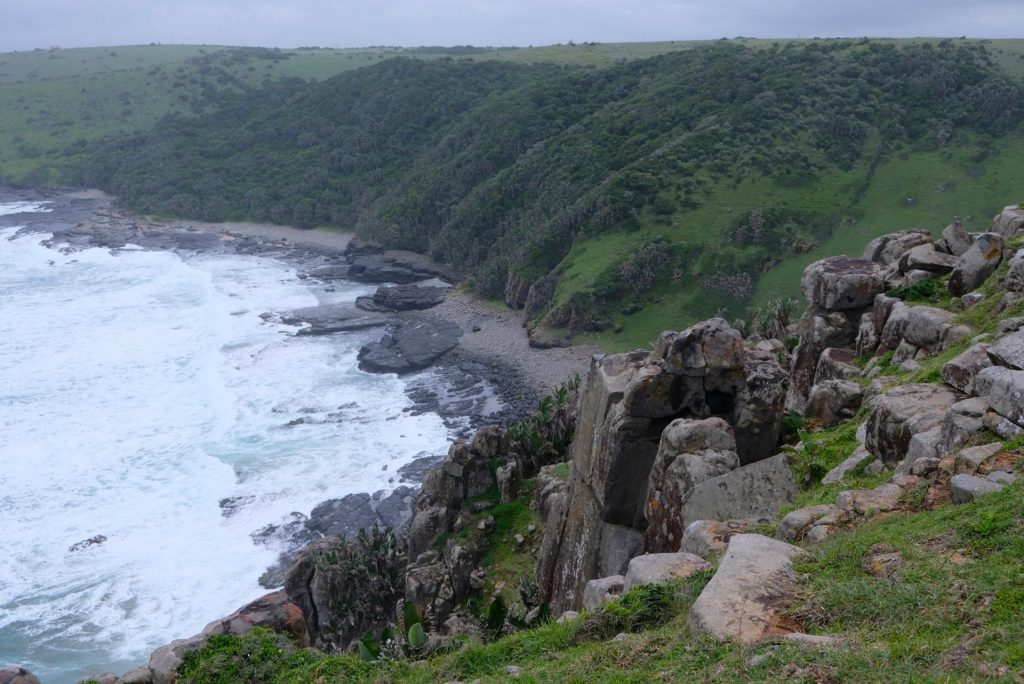A Constitutional Court case that will have lasting impacts for South Africa’s coastal communities, is looming. As oil and gas companies ramp up efforts to explore and drill along South Africa’s coast, there is hope in the form of unsung heroes – ocean defenders, fighting to protect their livelihoods and their heritage. The unity of the communities in this fight serves as inspiration that soon, there will be more “Davids” than “Goliaths” willing to challenge the oil and gas giants seeking to exploit our resources.
A group of residents from Port St Johns, along South Africa’s Wild Coast, sat calmy as they gathered in a house on a hill overlooking Sicambeni community, waiting patiently to hear news about a pending Constitutional Court hearing that could impact their lives.
On that day, the Constitutional Court hearing was only a few weeks away. The hearing is the final showdown of the community’s four-year fight to protect their basic human right to live and thrive in a healthy environment, and their deep cultural union with the ocean. The meeting opened in a joyful atmosphere, with a song and prayer, before community representative, Ntsindiso Nongcavu, welcomed everyone. Nongcavu is one of the applicants in the case, which has become locally known as the “Shell case” to people on the Wild Coast. Natural Justice’s legal teams were there to share information about the upcoming court case.
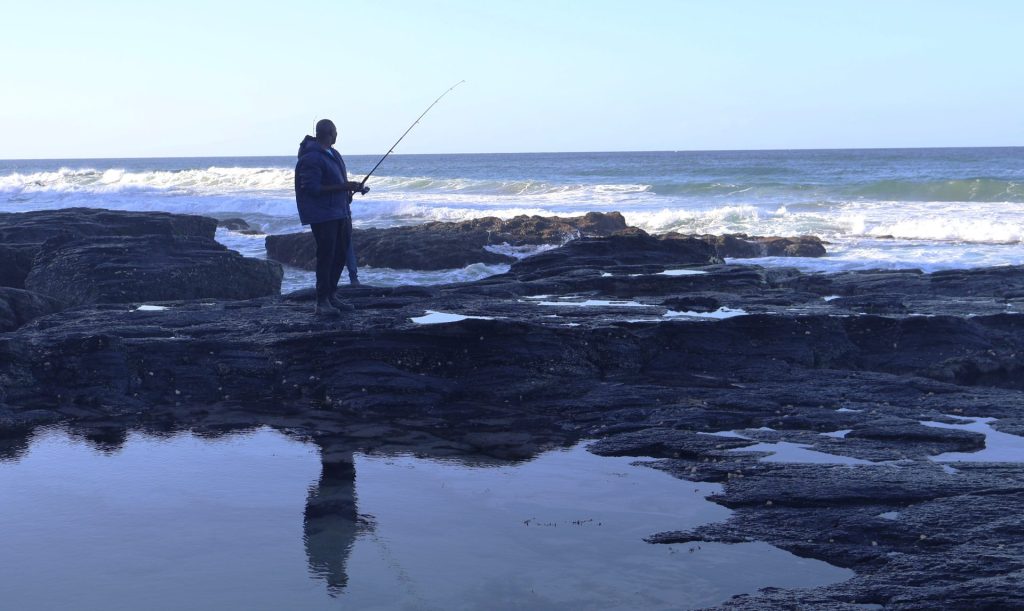
A win for the Wild Coast is a win for all
There are several applicants in the upcoming September hearing. The case will be a culmination of an ongoing legal dispute that started in 2021, when Shell, Impact Africa and government almost got away with unlawful seismic blasting to look for oil and gas resources to exploit – mere kilometres away from Port St Johns and Sicambeni.
The full story dates back to 2014, when Impact Africa was unlawfully granted an exploration right, in the absence of consultation with affected communities. In November 2021, when it first emerged that seismic surveys were about to be conducted by Shell (who by that stage was a joint holder of the unlawful exploration right), off the southern coastline. Communities and supporting civil society organisations quickly rallied to protect their environment and heritage by instituting urgent court actions and the matter was heard in the Eastern Cape High Court in.
The court victory in September 2022 rippled across the coastal towns when the court found that the exploration right had been granted unlawfully. The case then went to the Supreme Court of Appeal and there again, the wheels of justice turned mostly in the favour of communities, but, to their dismay, Shell was granted an opportunity to keep its right alive through a renewal process. For this reason, lawyers and civil society organisations representing the communities are turning to the highest court in the land – the Constitutional Court.
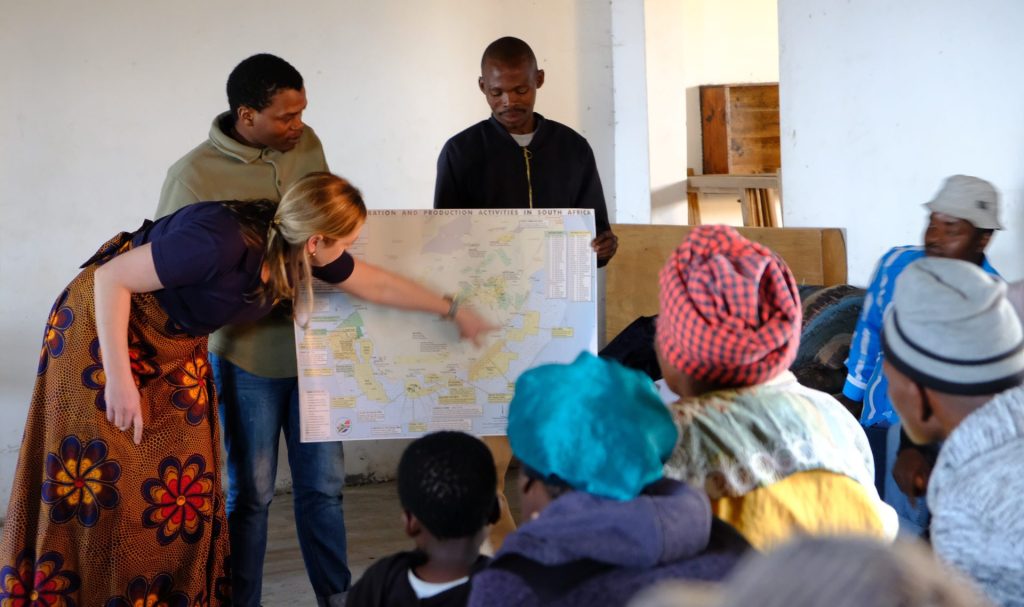
Port St Johns challenges should not be compounded by drilling
Nongcavu tells us that he was shocked when he first heard of Shell and Impact Africa’s plans. The communities maintain that the consultation process was deeply flawed – as most, if not all, wild coast residents have never heard of these plans.
As a local fisherman, learning the trade from generational knowledge passed down from his father, he was devastated to learn of the impacts that the exploration activities might have on the environment. He was taught to take only what he needed to take from the sea. He worried about what it meant for his livelihood. He decided to stand against seismic testing and drilling.
“Our understanding is that the ocean is alive. If it wants to give you something, it will give you – if it doesn’t want to give you something, they chase you away. If you come put more pressure in the ocean, what’s going to happen to our living?”
Nongcavu sees the opportunity for real development in Port St Johns, opportunities that will enhance people’s lives if government is really looking to invest in the people of South Africa.
“Now we’re having a challenge of climate change, because of these activities in the ocean – it affects us. Even if you are rich, even if you are poor… but it affects mostly to the poor people. That’s why we said we need government or rich corporates to invest in farming, tourism and fishing. Not other things to add more, because we don’t want to use expensive technology. We want to use our traditions to fish.”
As an applicant in this case, he has attended the many court proceedings and since adding his name to the court papers, he has become more active within the community.
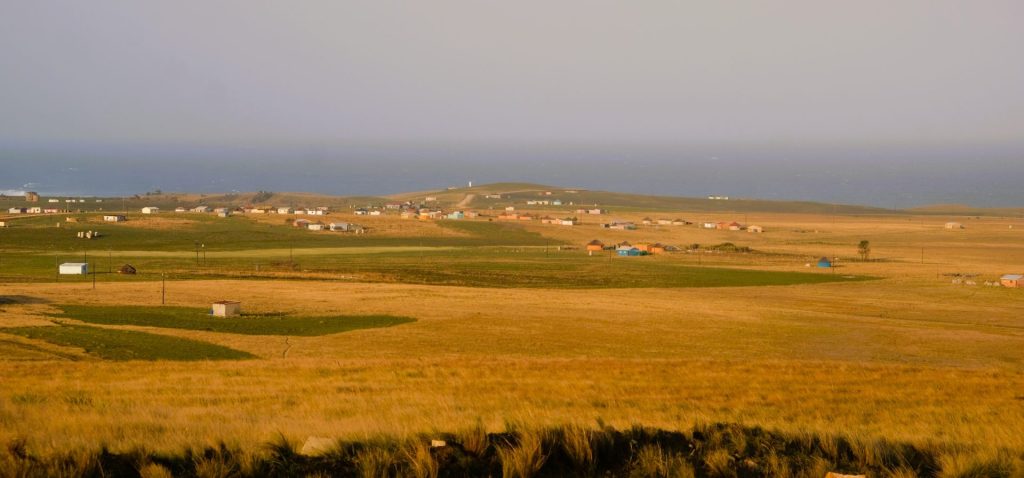
An ocean brings a spirit of Ubuntu
Mlondolozi Nozaza, another local fisherman, had only heard about the proposed offshore exploration when the matter went to court. Nozaza was visibly upset as he complained that the communities were never properly consulted as is required by law.
As younger member in fishing circles, he feels government must do better and find better ways to develop coastal towns in a way that can strengthen the economy and the lives of those who are the ocean’s first defence.
“No, there’s no way that it’s going to benefit us as a community. I think the best thing for the government to do when it comes to development, they must come to the communities…and do some research on how these people are living and come with development based on what the people need.”
His friend, Ezile Jiba, shared the sentiments. He said that ocean is part of their daily and spiritual lives and that their traditional fishing practices are done for the benefit of the whole community and the environment.
“As the community members along the coast, we have that belief of the ocean is one of the best homes for our ancestors…Our forefathers used species from the oceans to feed our families.”
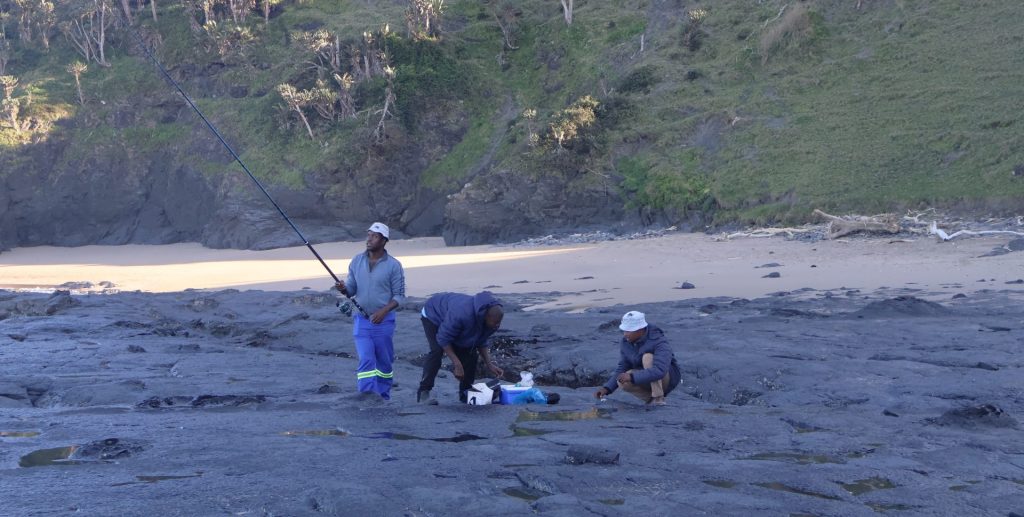
Development is defined differently on the Wild Coast
Port St Johns is a majestic coastal town with an untamed natural beauty. Across the lush valleys, you’ll find an abundance of Nguni cows wandering about. Picturesque, vast mountains falling into the sea create perfect backdrops. The geography, animal and plant species and cascading waterfalls make this a biologically wondrous place to experience.
Yet it is more than a tourist destination. It holds sacred history and cultural roots that grow deep into the sea grass dotting the seabed.
But, like most of South Africa, the socio-economic divide of the wild coast towns is stark for all to see.
Communities like Sicambeni have great potential for development. What that development looks like, however, should be decided by the people who live there. If their human rights and cultural dignity are compromised or sacrificed in the name of economic development, then we will have failed to uphold the Constitutional rights that were designed to protect the dignity of South Africa.
The court hearing takes place on 16 and 17 September 2025. Amandla!

